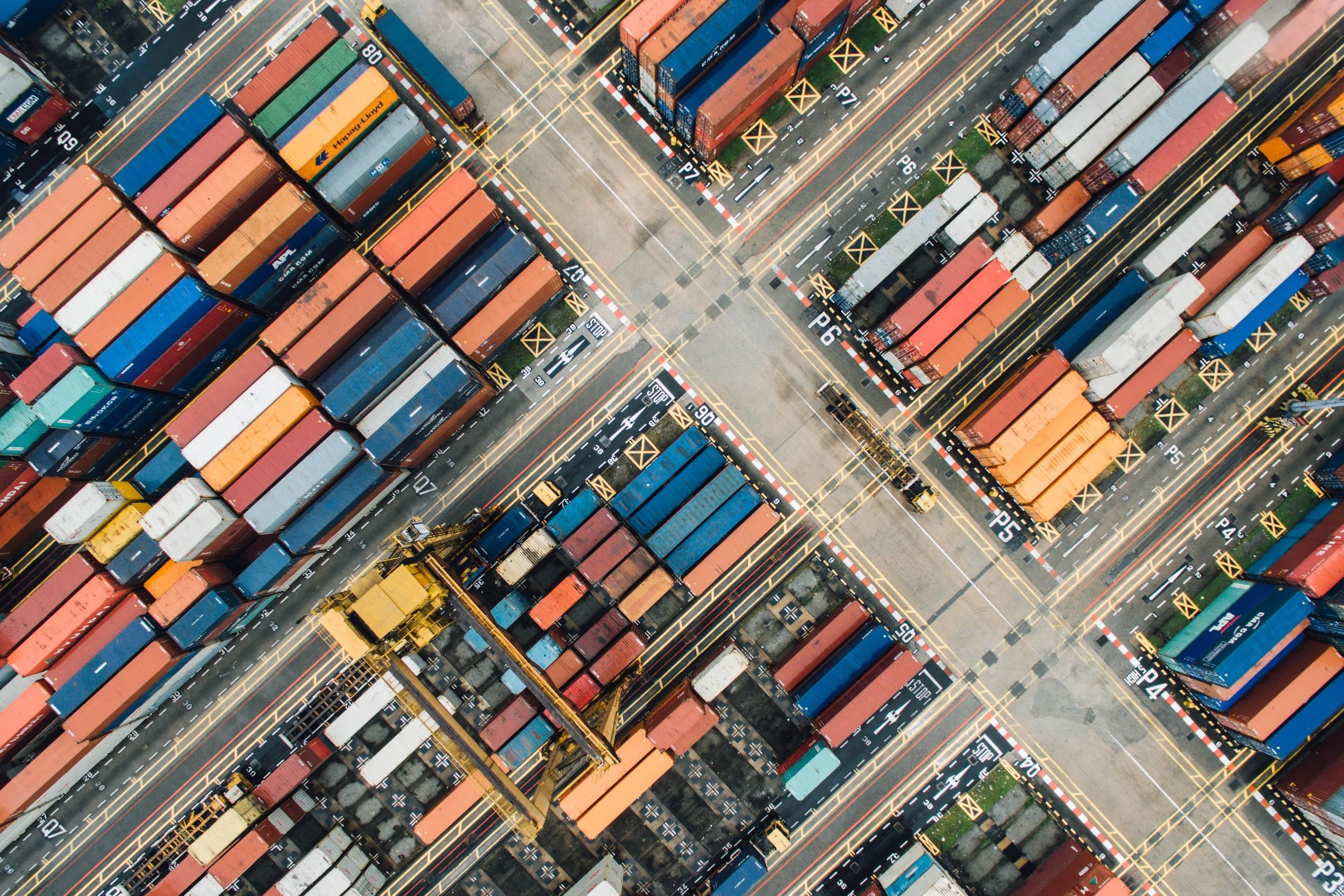Voltage Victory! ⚡️
Good morning! On this solemn occasion of the International Day of Remembrance and Tribute to the Victims of Terrorism, we stand in solidarity to honor and remember those whose lives were tragically affected by acts of terrorism. As we reflect on the profound impact of such events, we're reminded of the importance of fostering international collaboration and resilience within the supply chain community, ensuring a safer and more connected global future.
In today's newsletter, we bring you insights and updates that exemplify the strength of unity and progress in the face of adversity. 🙏
-
California has reached a significant milestone as Governor Gavin Newsom announced that, for the first time, one out of every four new cars sold in the last quarter were zero-emission vehicles (EVs). This achievement is aligned with the state's longstanding commitment to prioritize EV sales as part of its climate goals to reduce greenhouse gas emissions. The state has already surpassed its target of selling 1.5 million EVs, and it aims to have all new vehicles sold in California be hybrid or electric by 2035. Over 25% of new vehicles sold in the last quarter were EVs, totaling 125,939 sales, according to the California Energy Commission.
California's leadership in promoting EV adoption is evident, as it has sold over 1.6 million electric vehicles to date and accounts for 34% of all EV sales in the United States. The state has invested more than $5 billion to transition away from gas-powered vehicles and has set ambitious goals for zero-emission vehicles. Notably, in 2018, then-Governor Jerry Brown aimed to have 5 million zero-emission vehicles on California roads by 2030, while Governor Newsom later issued an executive order to ban the sale of gasoline-powered passenger cars by 2035. The California Air Resources Board has also mandated increasing percentages of zero-emission vehicles among new car sales each year, aiming for 100% by 2035. The state offers rebates to incentivize the purchase of green vehicles, contributing to this remarkable transition.
Check out today’s featured article from TT News to learn more about how 25% of California’s new cars sold are entirely EVs. Will the state reach its goal of banning the sale of gas-powered cars by 2035? Will more people start to promote the sale of these green vehicles?
Featured Article
One in Four New Cars Sold in California in Q2 Were EVs | TT News
“All-Time Record Puts State Ahead of Zero-Emission Timeline Goals.”
Strike & Labor Issues
Potential Auto Workers Strike Poses $5 Billion Cost in 10 Days, Analysis Warns
A potential strike by the United Auto Workers (UAW) union against General Motors (GM), Ford, and Stellantis, known as Detroit's Big Three automakers, could result in an economic loss of over $5 billion within 10 days, according to a report by Michigan-based consulting firm Anderson Economic Group (AEG). The analysis calculates the potential economic losses to UAW workers, the manufacturers, and the broader auto industry if the sides fail to reach tentative agreements before the current labor contracts expire on September 14. The strike's impact would be significant due to the current lower inventory levels, with industry inventories at approximately 55 days, making the situation more vulnerable than during the last UAW strike in 2019.
In the event of a 10-day strike, AEG estimates that GM could face losses of $380 million, Ford could face losses of $325 million, and Stellantis could face losses of $285 million. The report takes into account economic factors but doesn't include UAW strike pay, unemployment benefits, income taxes, or other potential effects. This assessment comes as the UAW leadership, which has adopted a more aggressive stance, hasn't pledged to limit its efforts to one automaker, making all three automakers susceptible to potential strikes. The report contrasts with recent comments from analysts who suggested that the impact of a strike on automakers might be less severe than anticipated.
Port & Aid
Hawaii Ports Take on Relief Efforts Amid Container Congestion Challenges
In response to the Lahaina fire in Maui and the ensuing supply chain congestion, Hawaii has temporarily waived wharfage fees at Kahului Harbor for inbound cargo. This move aims to support relief efforts as officials collaborate with community partners to distribute donations to fire victims. Hawaii's Lt. Gov. Sylvia Luke has taken charge of coordinating assistance efforts, and a donation storage and sorting center has been set up near Kahului Airport. Additionally, storage and distribution centers are being established in Oahu to manage the influx of relief supplies.
Hawaii-based logistics company M. Dyer Global halted accepting donations due to operational pauses resulting from port congestion, as the congestion has backed up containers in Maui. The state's Department of Transportation waived wharfage fees at the Maui harbor for various cargo types until September 10, including vehicles, agricultural goods, fuel, and loaded containers. Officials emphasize the need for support and assistance in light of the ongoing crisis, with the county of Maui setting up a wildfire relief support website and organizations like Aloha United Way, the Maui Humane Society, the Salvation Army, and the American Red Cross providing various forms of aid.
Let’s Get Global 🌎
Checking out the scoop outside of the United States…
🇨🇳 US-China ‘solar trade probe’ ruling to reshape billions in trade. The US Commerce Department is expected to conclude a 17-month probe this week, determining that certain Chinese manufacturers are evading tariffs by assembling solar equipment in other Asian countries before shipping it to the US. Preliminary findings already indicate that exporters in Cambodia, Malaysia, Thailand, and Vietnam are circumventing duties intended to counteract unfair pricing and subsidization in China. This could lead to significant antidumping and countervailing duties, potentially as high as 254%, starting from June of next year. While the final ruling may have some variations, experts believe a complete reversal is unlikely.
🇲🇽 Effective Shipping Strategies for Mexico to U.S. Imports. The process of importing goods from Mexico to the United States offers various benefits, including cost-effective production and trade agreement advantages. Understanding the logistical landscape involves partnering with experienced carriers and optimizing shipping routes for efficient deliveries. Adequate preparation, including having the necessary bonds, paperwork, and proper goods classification, ensures a hassle-free journey through customs. Regulatory compliance, involving approvals and adherence to standards, is crucial, along with the need for a Mexican legal entity for export from Mexico. Acquiring expertise in international trade is key for successful importing, as it involves a comprehensive understanding of customs regulations and tailored solutions for efficient supply chain optimization.
iLevel With You 🏡
More topics for the average American household to consider…
😷 Healthcare Apparel Brand Figs Focus on Improvement. Direct-to-consumer healthcare apparel brand Figs reported increased fulfillment expenses in its Q2 earnings call, primarily attributed to higher storage costs. The rise in storage expenses contributed to an uptick in selling expenses as a percentage of net revenues, leading to a 2.5% YoY increase. Figs' co-founder and CEO, Trina Spear, noted that the company anticipates a decrease in storage expenses over the next two quarters as they work through excess inventory and implement a project aimed at enhancing fulfillment efficiency and speed. The project, expected to cost between $16 million to $18 million, is set to position Figs for scalability, improved customer experiences, and potential future expansion.
💰Wealthiest Logistics Tycoons: Top Billionaires in the Industry as of August 17, 2023. As of August 17, 2023, Klaus-Michael Kuehne leads the list of the wealthiest individuals in the logistics industry with a net worth of $35.6 billion. Following closely, Rafaela Aponte-Diamant and Gianluigi Aponte share the second spot with $30.3 billion each, while John Fredriksen ranks fourth with $13.5 billion. Rodolphe Saadé, Jacques Saadé Jr., and Tanya Saadé Zeenny collectively hold the fifth to seventh positions, each with a net worth of $9.8 billion. Enrique Razon Jr. takes the eighth spot with $7.9 billion, followed by Dennis Washington in ninth place with $6.4 billion, and Fred Smith in tenth place with $5.9 billion.
🚚 Estes Bids $1.3 Billion for Bankrupt Yellow's Freight Terminals in LTL Industry Rivalry. Estes Express Lines, a less-than-truckload carrier, has presented its initial offer to purchase the real estate holdings of defunct competitor Yellow Corp., comprising over 160 freight terminals, during a U.S. Bankruptcy Court hearing in Delaware on August 17. Estes, ranked No. 11 on the 2023 for-hire FleetOwner 500 list, has emerged as a significant player in the complex Chapter 11 bankruptcy of Yellow, which halted operations due to labor union strikes and filed for bankruptcy last month. Estes' offer includes a "stalking-horse" bid of $1.3 billion for Yellow's terminals, providing a baseline for the forthcoming auction of these assets. The bid is expected to cover a substantial portion of Yellow's pre-bankruptcy debt and lease obligations, presenting a pivotal development in Yellow's bankruptcy proceedings.
Get Smart 🧠
Ramp up that brain power for these advanced topics…
🙌 Exploring Logistics Tech: Cainiao's Innovative Approaches. Automation in the logistics industry has transitioned from a peripheral tool to a valuable asset in the supply chain, as per Ding Hongwei, VP and General Manager of Logistics Technology at Cainiao Group. Innovations like AI and warehouse automation offer operational advantages for the supply chain, including managing inventory fluctuations and processing vast amounts of unstructured data. Cainiao utilizes its proprietary systems to streamline warehouse operations and achieve end-to-end visibility. The company believes in leveraging technology to drive growth and personalized services, enhancing customer experiences while maintaining operational efficiency. The rise of e-commerce in the Asia Pacific region, along with peak season surges, is driving digitization efforts among logistics operators.
🤖 Mobile Robots to Outpace Drones in Supply Chain Adoption Over Next Three Years. Gartner's Hype Cycle report for 2023 indicates that the adoption of smart mobile robots in supply chains is set to grow rapidly and will surpass the adoption of drones over the next three years. The report suggests that organizations already using mobile robots will expand their fleets significantly, potentially deploying hundreds or even thousands of robots for various tasks. In contrast, drones are expected to be deployed in more targeted ways, such as for specific inspections or critical goods deliveries. The report also highlights the increasing interest in multiagent orchestration platforms to manage heterogeneous fleets of robots from different vendors, which will enhance efficiency and cost savings in logistics operations.
👩🏻💻 Carrier Relationships Through Data-Based Intelligence Democratization. The US trucking industry, characterized by high fragmentation, presents challenges for carriers to access shipper bids effectively. Andrew Leto, CEO of Emerge, discusses efforts to democratize bid access through their platform. Emerge advocates for a dynamic approach to address price volatility, replacing annual RFPs with continuous bid cycles that allow shippers to benchmark prices regularly. Leto emphasizes the importance of both digitalization and human relationships in building successful shipper-carrier partnerships. He suggests that data-driven carrier scorecards can aid in selecting the right partners and fostering relationships to navigate tight freight markets effectively. Balancing technology with human interaction is key, as responsive and effective carriers with strong human connections are preferred partners. The combination of data-based intelligence and quality human intervention is highlighted as a strategy for success in the evolving market landscape.





































The Workday Dash is an aggregation of articles regarding the transportation logistics, trucking, and supply chain industries for November 25, 2024, from iLevel Logistics Inc.